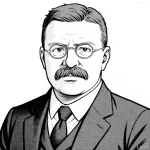“The essential act of war is destruction, not necessarily of human lives, but of the products of human labor.”

- June 25, 1903 – January 21, 1950
- Born in India during the British colonial period
- Author, journalist
table of contents
Quote
“The essential act of war is destruction, not necessarily of human lives, but of the products of human labor.”
Explanation
In this quote, George Orwell shifts the focus of war from the typical view of it as the destruction of life to the more profound and often overlooked destruction of the products of human labor—the goods, infrastructure, and cultural achievements that people have worked to create. Orwell suggests that war is not just about killing, but about devastating the fruits of human effort—whether through the destruction of factories, farmlands, homes, or cities. These acts of destruction have long-term impacts on the economy, society, and culture, reducing the material foundation upon which people depend for their livelihood and well-being. In this sense, war is a means of erasing progress, regressing societies, and undoing the hard work of generations.
Orwell’s critique reflects his broader concerns about the brutality and futility of war. His own experiences, particularly during the Spanish Civil War, shaped his understanding of how war leads not only to loss of life but to economic and social collapse. The destruction of human labor during wartime doesn’t just impact the present generation—it creates decades of disruption and suffering for future generations as societies struggle to rebuild. In works like 1984 and Animal Farm, Orwell critiques the ways in which totalitarian regimes use war to maintain control, often by redirecting resources to destructive ends and creating environments where human labor is wasted or misused.
This perspective remains highly relevant today, as modern warfare, both physical and economic, continues to involve the destruction of not just lives, but entire economies and infrastructures. Whether through bombings, cyberattacks, or economic sanctions, the consequences of modern warfare are often felt in the long-term impact on people’s livelihoods and societal development. Orwell’s words serve as a reminder that war, even when it doesn’t directly claim lives, has profound effects on the ability of people to thrive, and it highlights the tragic and destructive nature of conflict that extends beyond the battlefield into the very foundations of society.
Would you like to share your impressions or related stories about this quote in the comments section?




